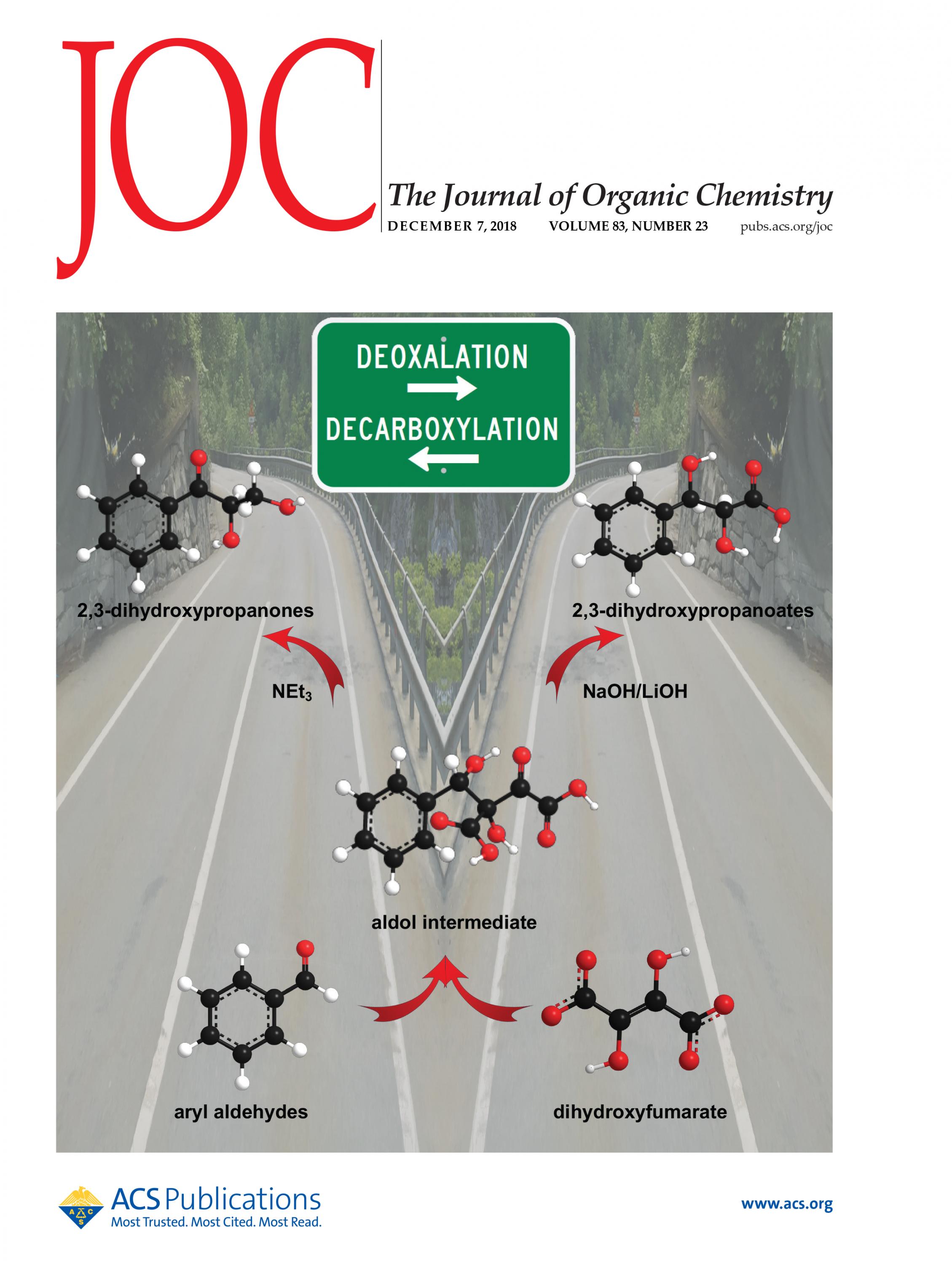Georgia Tech researchers have expanded the synthetic value of the common building block dihydroxyfumaric acid (DHF). The diester derivative of DHF has been used exclusively as an electron-seeking (electrophilic) reagent in organic synthesis.
Research by George Ward, in the School of Chemistry and Biochemistry, has expanded the scope of DHF chemistry by using it as a nucleus-seeking (nucleophilic) player in organic reactions in the presence of bases. Ward is a Ph.D. student of Stefan France, an associate professor of chemistry and member of the Parker H. Petit Institute of Bioengineering and Bioscience. They collaborated with Charles Liotta, professor of chemistry, and Ramanarayanan Krishnamurthy, of The Scripps Research Institute, in La Jolla, California.
The newly unleashed reactivity of the well-known reagent opens alternative routes to complex building blocks needed to prepare pharmaceutically relevant compounds. The researchers demonstrated the versatility of nucleophilic DHF in the synthesis of C-veratroylglycol – an expensive, bioactive naturally occurring compound – in one step from vanillin.
The work was published online in September in The Journal of Organic Chemistry and is featured in the journal’s December 2018 issue.
The work was supported by the National Science Foundation and the NASA Astrobiology Program under the NSF Center for Chemical Evolution (CHE-1504217).
For More Information Contact
A. Maureen Rouhi, Ph.D.
Director of Communications
College of Sciences





